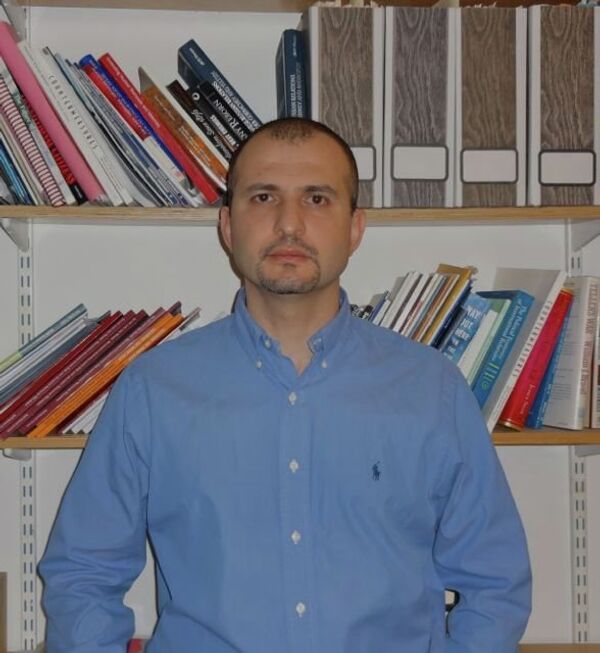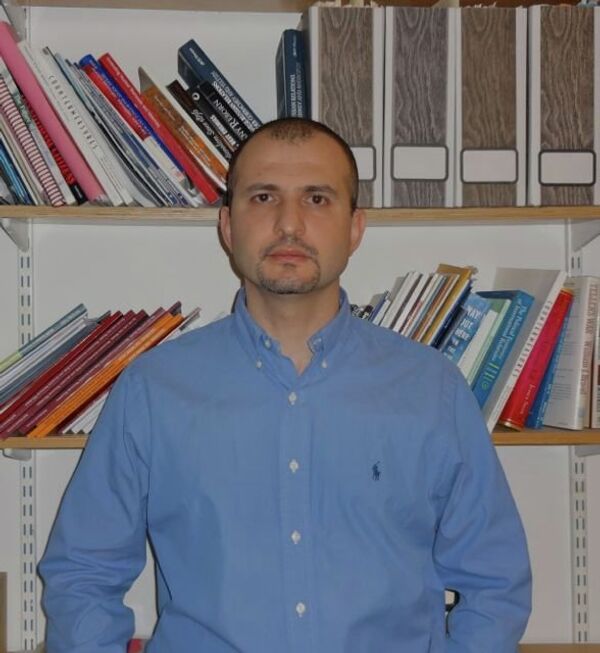Coutts Bank has for the first time included a section on Russia in its annual global survey on philanthropy, and it makes for interesting reading.
In 2011-2013, Russians made 98 donations worth a total of more than half a billion dollars, according to the British bank’s Million Dollar Donors Report, which tracks donations of $1 million or more by individuals or foundations. Corporate philanthropy isn’t included in the survey.

Half a billion dollars is a pretty significant sum, especially given how relatively little time Russia’s post-Communist rich have had to not only accumulate wealth, but also learn to give.
But there is obviously still a long way to go compared with the stalwarts of capitalism studied in the report.
The $239 million in donations that Coutts counted in Russia last year is considerably lower than Britain’s $2.2 billion, the United States’ $14 billion or even Honk Kong’s $877 million.
It is true that the United States has a bigger economy and that legislation there encourages giving through tax exemptions and other perks. But the difference is still striking.
The size of the US economy last year, as estimated by the IMF, was eight times bigger than that of Russia, but US donations as counted by Coutts exceeded Russian donations by more than 58 times over that period of time.
What’s also disheartening is that the total value of Russian donations of $1 million or more went down to $239 million last year, from $306 million in 2011.
I would argue that Russia’s richest should have a more compelling reason to give than their Western counterparts.
While most of the latter’s wealth has been legitimized and was accepted long time ago, significant parts of the Russian population have yet to accept the often opaque division of economic assets that happened during privatization of the early 1990s.
The most egregious of the privatization deals was the loan-for-shares scheme of 1996 – implemented when then-President Boris Yeltsin sought the aid of oligarchs to secure re-election.
In that scheme, oligarchs loaned $780 million to the government, receiving collateral in the form of state-owned assets worth more than $2 billion, according to Daniel Treisman, a leading US scholar on the Russian economy.
The government never paid the loans back, so the original oligarchs ended up pocketing the assets that came to form the backbones of their business empires.
No wonder national polls have shown that three-quarter of Russians favor revision of the privatization drive of the 1990s.
One way for Russian moguls to achieve acceptance of the results of privatization is to follow the example set by the 19th industrial titans and original robber barons of the United States, such as Andrew Carnegie.
This ruthless capitalist ended up donating a considerable portion of his wealth in a philanthropic exercise that flourishes to this day. Not only Americans, but other nationalities, including Russians, have seen the benefit.
Much more recently, Bill Gates – who is no robber baron – has donated over $28 billion to his philanthropic foundation. Together with investment guru Warren Buffet and Facebook chief executive Mark Zuckerberg, Gates has promised to eventually donate at least half of his wealth to philanthropic projects.
One of Russia’s original oligarchs, Vladimir Potanin, pledged in March to spend half of his estimated $14.3 billion fortune on philanthropy.
If this promise were fulfilled, it would set an example both for Russia’s first wave of nouveau riche and those who joined their ranks later.
I don’t expect too many to follow in Potanin’s footsteps and donate half of their wealth to philanthropy, even though they may have made their fortunes in the country.
Anyhow, some couldn’t do it even if they wanted. As Alexander Pushkin wrote “Some are no more, and distant … others.”
But the surviving oligarchs could at least monetize the gains that they made in the most questionable of the privatization deals and spend them on philanthropic projects to help to tackle Russia’s existing social woes and encourage sustainable development.
There is, of course, a sizeable number of Russian billionaires who have made their wealth after the murky wave of post-Communist privatization subsided. But even they would ultimately benefit from helping to mitigate the striking social inequalities in a country where 18 million live below poverty line and where billionaires account for 35 percent of all wealth compared to the worldwide average of a mere 1-2 percent, according to the 2013 Credit Suisse Wealth Report.
Russia had an estimated total of 1,290 high-net-worth individuals, who collectively owned $710 billion last year.
If they donated half of their collective fortune to charities, their combined philanthropic contribution would exceed what the Russian government allocated for social expenditures last year.
Russia has quite a few ills, ranging from poverty to drug abuse. But at least some of those could be mitigated by philanthropy, especially if these were generously financed and implemented by Russia’s savviest entrepreneurs who know to develop and implement projects. And the state could foster a culture of giving by fine-tuning legislation to encourage philanthropy through more tax exemptions and other benefits.
Simon Saradzhyan is a researcher at Harvard Kennedy School's Belfer Center. His research interests include international security, arms control,
counter-terrorism as well as political affairs in post-Soviet states and their relations with major outside powers. Prior to joining the Belfer Center in 2008 Saradzhyan had worked as deputy editor of the Moscow Times and a consultant for the United Nations and World Bank. Saradzhyan holds a graduate degree from the Harvard University.
The views expressed in this column are the author’s alone.
View From the Global Tank: Russia Needs Silver Lining as Energy Market Prospects Look Grim
View From the Global Tank: Russia, America Struggle to Kick MAD to the Curb
View From the Global Tank: Georgia’s NATO Wish Is Understandable, But Difficult to Grant
View From the Global Tank: What Would Don Fanucci Say on Using Missiles to Coerce Assad?
View From the Global Tank: Striking Syria May Be Unavoidable – But Mission Creep Must Not Be
View From the Global Tank: Obama-Putin: Now It's Personal?
View From the Global Tank: Our Changing World Order – the More Options for Cooperation, the Merrier
View From the Global Tank: Appointing Rice, Power Won’t Alter Obama’s Policy on Syria, Russia
View From the Global Tank: Missile Defense Need Not Derail US-Russian Relationship
View From the Global Tank: The Last Chance to Prevent a Mediterranean Somalia



